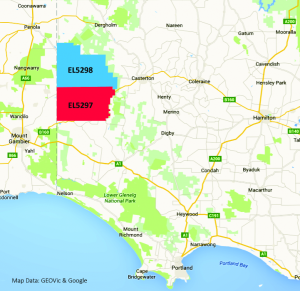The Hamilton Spectator – September 24, 2015
SOUTH-West Victorian farmers have expressed concern about a proposed oil shale drilling project between Casterton and the South Australian border.
They say that their focus is on what will happen to food production over the next century, rather than the economic benefits over the lifespan of an unconventional oil or gas field, which can be as low as a few years.
The Spectator reported on Tuesday that a Melbourne-based industrial engineering and miner exploration company had told the Victorian Parliament’s gas inquiry it was “beyond doubt” that there was a prospective oil shale deposit in the south west.
Mecrus Resources wrote in a submission to the inquiry that it had “invested significant money to date in detailed exploration” and it believed the deposit was “world class” and could last 40 years.
The company has two exploration licences covering 1500 square kilometres between Strathdownie and Lake Mundi.

Mecrus will probably have to use the ‘fracking’ extraction technique to improve yields at the oil field if the project goes ahead, and there is the possibility of natural gas at the site as well.
The issue of fracking has generated a considerable groundswell of opposition, which includes many local farmers who see it as a threat to agriculture.
Mecrus has stated that a successful shale oil project would bring “massive flow on effects for local communities” in terms of new jobs and businesses.
With beef, lamb and wool prices at high levels, farmers are planning to tell Victorian MPs that there is a strong economic case to give priority to farming.
Byaduk North prime lamb and premium beef farmer Mal Rowe told The Spectator that “extremely productive agricultural land” was being put at risk from oil and gas development.
He said south-west Victorian pasture was averaging 20 sheep per hectare but Queensland and NSW could only manage one to three sheep per HA.
“We are adamant; we are not going to back off,” he said.
“There is a buyer who has been sourcing steers form this region for 25 years.
“They are sent to Japan as top-quality restaurant beef. He knows exactly what animals he is going to get.
“It would only take one thing to upset this.”
Mr Rowe believes that oil drilling between Casterton and South Australia would threaten aquifers that provide water for local towns and farms.
“You have got to look at the percentage of wells that will fail: about one per cent. I don’t know the number of wells they might drill but some of them will eventually fail and that will put aquifers at risk,” he said.
“Forever is a very long time; I know that wells are encased in a number of layers of steel and concrete but they will never be as strong as the substrates.”
Mr Rowe pointed to recent ‘Food Not Gas’ rallies across the region, which have attracted 100 to 300 people at each event, as evidence that many other locals shared his views.
Mecrus specifically mentioned local aquifers in its submission to Parliament, stating that “The oil shale is quite deep and it is significantly separated from any utilised groundwater aquifers”.
A number of local landowners, along with about 1000 people, attended an anti-gas rally in Melbourne on Sunday that called for a permanent ban on fracking and onshore unconventional gas.
Victoria currently has a temporary moratorium on most aspects of onshore gas but its future will be influenced by the inquiry that received Mecrus’s submission, along with 1700 others.
The inquiry was due to hold a hearing in Hamilton yesterday, with speakers from local Aboriginal groups, governments, farmers and Wannon Water.
Mr Rowe said he was “pleasantly surprised by the number of people and overwhelmed by the support we got from both country and city people”.
“There are so many people opposed to the development of an unconventional gas industry, right across Victoria from Gippsland and the south west.”
Mr Rowe said he would be willing to support a strict regulatory regime instead of a ban “but the compliance would have to be so high as to leave no doubt that it wouldn’t compromise agriculture”.
Petroleum industry lobby group APPEA has told the Victorian inquiry that an onshore unconventional gas industry would boost the economies and populations of country areas.
As mining jobs and investment slows down in Australia’s northern states, there was some interest from ex-locals in returning to the region if a similar industry took off.